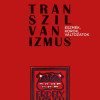Pulay Gergely Personalized Value Struggles amid Marketization: The Search for the Good among Men on the Margins of Bucharest című tanulmánya az East European Politics and Societies: and Cultures folyóiratban jelent meg.
Absztrakt
In the most notorious, mixed Roma and non-Roma Romanian neighbourhood of Bucharest, structurally accumulated problems of governance turn into practical challenges that need to be tackled with the means at each person’s disposal. Under conditions of capitalist incorporation and prolonged crises on the post-socialist periphery, the main protagonists of this account—male members of an extended network of Spoitori Roma with diverse livelihoods—strive for relative independence not only from market forces but also from actors who may expose them to abuse. In this article, I reflect on personalized value struggles associated with marketization. Instead of accepting the sectorial divisions between formality and informality, I show how marketization elucidates moral evaluations of being and doing good among men who hope to be or become “their own bosses” in precarious urban conditions. Distinguishing folk and analytic concepts, my analysis engages with the moral contestation of the “good” and the ambiguity of value-based human endeavours among different layers of contemporary economic life.


